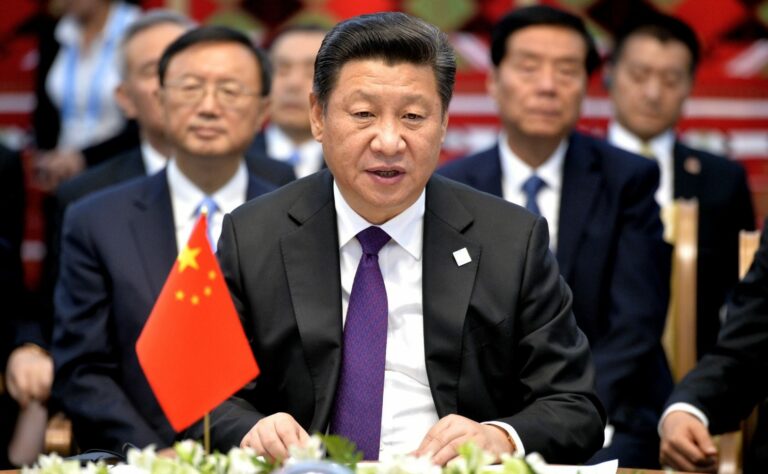
This article was originally published by Radio Free Asia and is reprinted with permission.
Global internet freedom declined again in 2022 for the 12th year in a row, with China remaining as the most restricted country for the 8th consecutive year, a new study has found.
In its latest study, ‘Freedom on the Net 2022’, U.S.-based advocacy organization Freedom House said Russia, Myanmar, Sudan and Libya received the largest downgrades in terms of internet freedom.
The invasion of Ukraine saw Russia’s rating drop seven points to an all-time low as “the Kremlin blocked websites as well as major social media platforms to eliminate other accounts of its ‘special military operation’,” the report said.
China remains “the worst environment for internet freedom.” Beijing continued to tighten its control over the country’s technology sector and set up new rules that require platforms to use their algorithmic systems to promote the Communist Party’s ideology.
In at least 53 countries, internet users “faced legal repercussions for expressing themselves online, often leading to draconian prison terms,” Freedom House said.
Yet in some 26 countries internet freedom improved, especially thanks to the efforts of civil societies.
‘Most repressive online environment’
‘Freedom on the Net’ is an annual study of internet freedom conducted by Freedom House. This year it covered 70 countries with 89 percent of the world’s internet users.
China stayed at the bottom of the list, with content related to the 2022 Beijing Olympics and the COVID-19 pandemic being heavily censored during the coverage period.
Censorship of content related to women’s rights against sexual assault and harassment was also tightened.
One of the examples was the case of Peng Shuai, the tennis star who accused former Vice Premier Zhang Gaoli of sexual abuse on social media platform Weibo.
Not only did her posts about Zhang disappear from Weibo but also posts by other users which referred to Peng were removed.
“Journalists, human rights activists, members of religious and ethnic minority groups, and ordinary users were detained for sharing online content, with some facing harsh prison sentences,” the study said, naming China “the world’s most repressive online environment.”
Beijing created new policies and rules to strengthen the government’s control over Chinese tech firms. Companies that defy the government’s authority, such as by enabling internet users to bypass the state firewall, face heavy fines or even stronger penalties.
And it is not only in China that has a repressive internet, authorities in 47 countries, or two-thirds of the 70 countries surveyed in the report, “have used their legal and regulatory powers to limit access to foreign information sources, leaving residents in a domestic information space that is effectively shaped by the state.”
The result is an internet that “is more fragmented than ever, preventing billions of people from exercising their human rights online,” said the authors of the study.
Blocking internet access
One of the worst offenders when it comes to internet restriction is Myanmar where the ruling junta has created a domestic intranet to silence opposition and consolidate power following the Feb. 2021 coup.
The internet has often been shut down or restricted at the same time as military campaigns against pro-democracy groups and ethnic militias.
The study found that the Myanmar public can currently only access an estimated 1,200 websites and platforms through mobile connections. Popular platforms Facebook and Twitter remain inaccessible for most people.
One of the most economically developed countries in Southeast Asia, Singapore, has also experienced a decline in internet freedom, the study alleged.
“Laws passed in recent years, such as the Foreign Interference (Countermeasures) Act, 2021 (FICA) and the Protection from Online Falsehoods and Manipulation Act, 2019 (POFMA), empower authorities to restrict online activity with broad latitude,” the report said.
“The ruling People’s Action Party (PAP) and the family of current prime minister Lee Hsien Loong has dominated Singapore’s parliamentary system since 1959,” it said, noting that the Singaporean legal framework “allows for some political pluralism but constrains the growth of credible opposition parties and limits freedoms of expression, assembly, and association.”
Singapore is rated as “partly free.”
Internet freedom in Russia
A main section of the ‘Freedom on the Net’ study was dedicated to Russia where the largest national decline in freedom was reported.
Within weeks of the invasion of Ukraine, “the Kremlin blocked Facebook, Instagram, and Twitter, depriving Russians of access to reliable information about the war and limiting their ability to connect with users in other countries,” the report said.
More than 5,000 websites were blocked and a law was introduced to prescribe up to 15 years in prison for those who spread “false information” about the Ukrainian war.
By the end of February 2022, the Russian government had blocked a number of news sites including Radio Free Europe/Radio Liberty (RFE/RL), a sister broadcaster of RFA, the Voice of America (VOA) and the BBC.
Moscow also blocked civil society websites, such as Amnesty International and Human Rights Watch.
Authoritarian leaders have sought to contain online dissent by preventing residents from reaching information sources based in countries with a greater level of media freedom, the study said.
“Greater focus should be placed on developing political and societal resilience… Democratic leaders should recommit to preserving the benefits of a free and open internet,” it recommended.
“True resilience requires new regulations that enshrine protections for human rights in the digital age, stronger multilateral coordination on cybercrime and corporate accountability, and deeper investment in civil society,” Freedom House said.
Founded in 1941, Freedom House is a non-profit, non-partisan organization mostly funded by the U.S. government. It “works as an independent watchdog organization dedicated to the expansion of freedom and democracy around the world,” according to the Freedom House website.
0 comments :
Post a Comment